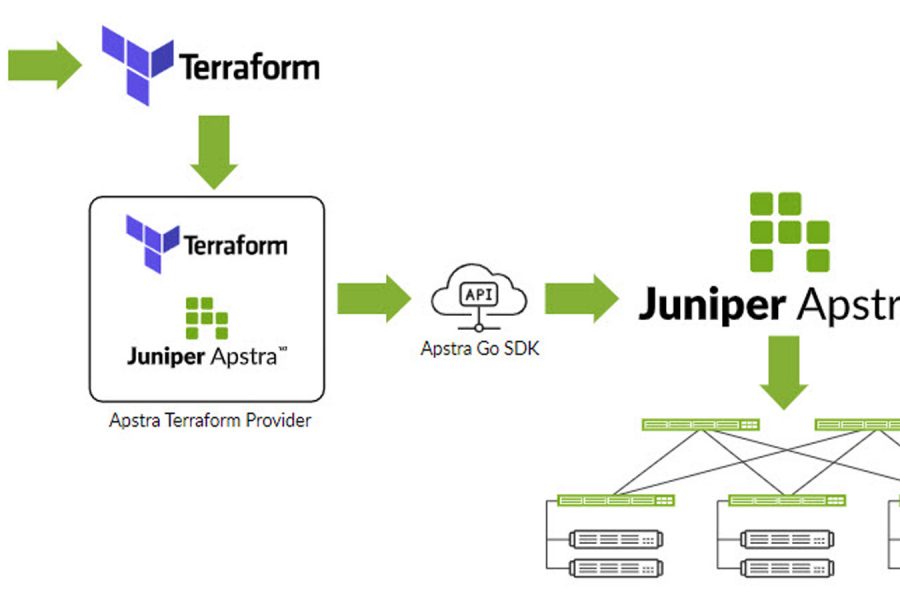First platform introduced on Broadcom Trident 4 programmable merchant silicon
A modern world devours bandwidth. From on-prem data centers to public clouds, the increase in consumption will only continue to grow. In order for many organizations to keep pace, transitioning to 400G-ready devices in the data center is a necessity.
To help customers on this journey, Juniper has been aggressive in the development of our comprehensive 400G portfolio over the past two years with 11 switching and routing platforms available.
 I am thrilled to introduce the latest addition to the Juniper 400G portfolio — the QFX5130 Switch based on the Broadcom Trident 4 chipset. With the QFX5130, customers benefit from our developers adapting a rich set of software functionality for finely tuned operations and security to the value and performance of merchant silicon.
I am thrilled to introduce the latest addition to the Juniper 400G portfolio — the QFX5130 Switch based on the Broadcom Trident 4 chipset. With the QFX5130, customers benefit from our developers adapting a rich set of software functionality for finely tuned operations and security to the value and performance of merchant silicon.
Organizations requiring scale-out networks to run applications dependent on sophisticated traffic-handling with in-band telemetry and traffic steering based on dynamic state will benefit from Juniper’s compact, value-based solutions.
“Juniper is the first to offer its customers a solution with the programmable power of the Broadcom Trident 4 merchant silicon,” said Ram Velaga, senior vice president and general manager, Core Switching Group, Broadcom. “By extending the broad array of the Junos OS forwarding functions to a programmable 400G merchant chipset, Juniper is delivering a diverse set of use cases now economically available to more buyers.”
By delivering new platforms to meet 400G needs, Juniper is on a roll. Since our first 400G product launch, the PTX10003 Packet Transport Router, we have over 75 total customers, including POCs, who have deployed 400G capable platforms. And just last month we introduced the PTX10001-36MR, a cloud-optimized, high-density router powered by Juniper’s Triton silicon. Juniper’s 400G portfolio covers use cases from DC spine and leaf, DC edge and DCI to core, peering and the multi-service edge, while featuring industry-only 400GbE in-line MACsec on the PTX portfolio.
400G Economic Drivers
The economics of scale are driving the industry transition to 400G as servers ship with 100G ports and applications require faster networking speeds. As the economics of networking come under more scrutiny — especially in large and web-scale data centers — demand is surging for more efficient networks that continue to lower cost per bit. By introducing economic leverage to a place in the network that has traditionally lacked sufficient competition, the new QFX5130 opens new possibilities for customers.
By bringing the QFX5130 to market, Juniper has jumpstarted innovation through its talented engineering heritage and the extensive software base built for its custom programmable ASICs.
“Juniper has a rich background in programable silicon solutions,” said Alan Weckel, Founder and Technology Analyst at 650 Group. “Their new QFX switch leveraging Trident 4 adds flexibility to their 400G portfolio and delivers a leap in business value to meet the industry demands for telemetry and programmability in the multicloud world.”
Introducing the QFX5130 Switch and Use Cases
For large data center customers that require advanced switching and routing capabilities in a cost-effective 400/100GbE switch, the QFX5130 delivers flexibility in customizing services and tuning operations for performance and security in scale out designs. The QFX5130 runs the most modern network OS with the Junos OS recently rebuilt specifically for cloud networking use cases through its disaggregated software design. Within the platform, Juniper can serve a diverse set of use cases by adding new features and tailored extensions.
Customers can be ready to run applications ranging from custom services delivery in mobile networks to breakthrough scientific research accelerated by high-performance computing clusters with the QFX5130. Additionally, with its scale and richness in packet inspection, filtering and telemetry, the platform is a good fit for use cases such as neural networks for AI applications, including autonomous driving, disaggregated storage, packet brokering and over-the-top streaming services.
Delivering Differentiation
As applications become more dynamic, the need for advanced flexibility in packet handling will increase. It’s not hard to imagine use cases where applications adjust their behavior depending on the conditions either on the network or within the devices themselves, be it throttling application throughput in the presence of intermittent packet drops or triggering heavy data backups on off-hours.
The new generation of Juniper switches opens up the choices in cost-driven data switching platforms. When network services and forwarding behavior need to be controlled based on conditions within or above the network, programmable hooks into traffic handling must be available. These available hooks give Juniper engineers the flexibility to work closely with customers in delivering specialized use cases as a result of QFX5130 programmability. The programming capabilities speeds development time and gives us the flexibility to deliver, in software, what was previously required as silicon development in the forwarding path by merchant vendors.
Get Started Today
Our 400G portfolio is ready and customers are running 400G networks today. As Juniper customers rapidly expand their networks and deploy our 400G platforms, I’m delighted that many are also taking advantage of the attractive economics of Juniper Financial Services (JFS) offers to help them keep up with demand. Customers tell us that these services are a key reason that they’ve been able to move forward with much needed expansions to keep up with the remarkable traffic loads triggered by new needs for remote work, school and remote connections.
Juniper is here to help you prepare your network for what’s next in new applications, dynamic traffic patterns and increased scale. Find out more about our 400G solutions and the value that they can bring to your digital business.

























